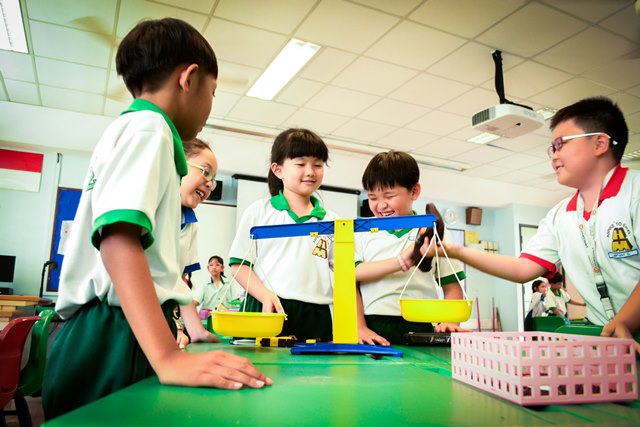Stop Cramming, Start Learning
09 Oct 2015

Forget rote memorisation – for students, grasping concepts is the key to understanding. Our education researcher explains how parents can find out if their kids get the “big idea”.
Learning happens when a student has good retention – understanding concepts and principles taught – and good transfer skills – the ability to apply knowledge to solve different types of problems in different contexts.
Rote memorisation alone is not enough as it’s a short-term method of retaining information based on repetition. It’s not the best way to master a complex subject, especially at an advanced level. What’s more important is to understand the big idea behind a concept and practise applying it in various situations.
In Primary 3 Science class, for example, students learn about the diversity of materials. It’s no doubt important for the child to explore and learn (even memorise) the properties of different materials. But the big idea for the child to take away is that man makes useful things from these materials based on their properties. So, can the child relate the use of different everyday objects to the properties of the materials?
Many students start cramming when exams are around the corner. Instead of treating your brain like a filing cabinet where you store all the data you’ve memorised over the year, the smarter strategy is to learn through connecting ideas together by relating them to something you already understand. Use real-life situations to understand complex equations, create diagrams to show the relationship between ideas, visualise abstract concepts and simplify difficult ideas using language a five-year-old can understand.
Dr Poon Chew Leng, a veteran teacher who is currently MOE’s principal specialist for research and curriculum, has these simple tips for any parent eager to help their kids with revising for understanding.
Can your child solve the problem himself?
Even if you have his tutor on speed dial or your first instinct is to help him with his homework – don’t. Have some patience and allow your child to try, and even make mistakes. Sit beside him, show an interest in his work and acknowledge his effort. You’re not helping your child by giving him all the answers, all the time.
Does he ask questions?
If your child can come up with probing questions about a topic he’s learning, he’s on the way to understanding the concept. Don’t worry if you don’t have the answers he’s looking for: tell him to write down his questions and follow up with his teacher the next day. You could also take him to the library to do some research.
Can he explain what he’s learned to the next kid?
Ask your child to talk you through the steps he followed. Doing so deepens his learning and improves his reasoning skills. If he’s able to explain his approach, chances are he’s on his way to fully grasping the concept being studied or, just as importantly, realising where he went wrong with this work.
Can your child apply his knowledge?
Find out if your child understands a concept by giving him various problems to work on, especially when it comes to subjects like Math. Your child should be able to apply a single concept to various relevant situations if he has a firm grasp of the topic.





